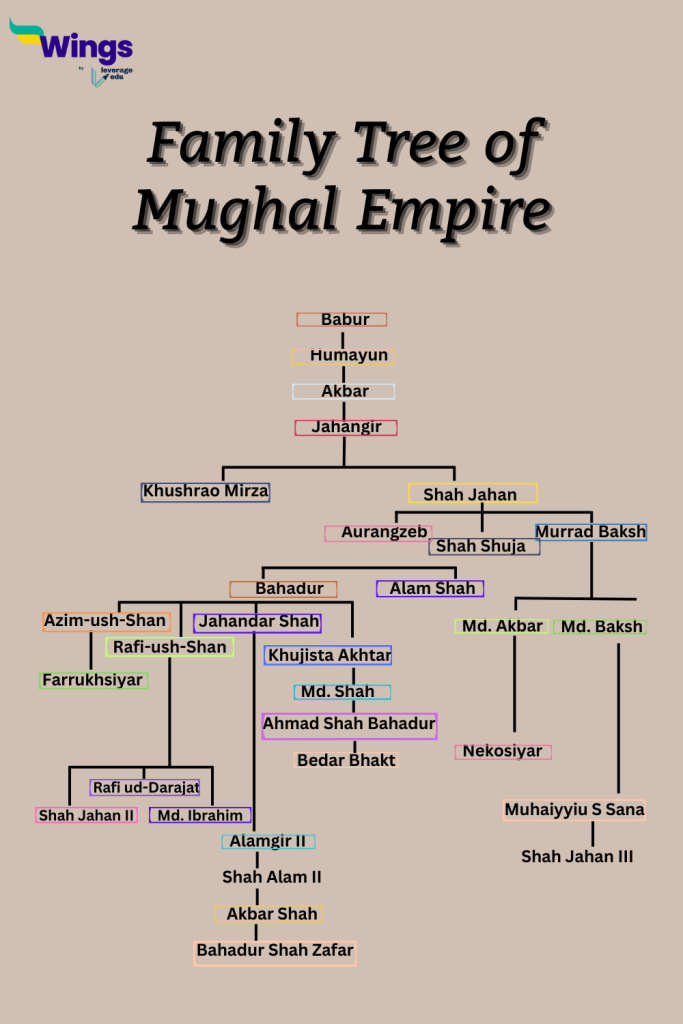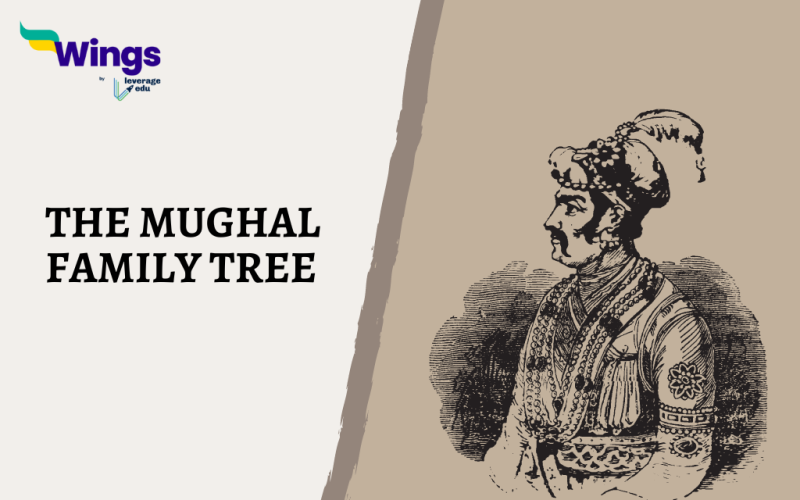From the 16th century to the 19th century, Mughal emperors ruled almost throughout India. Babur established the Mughal dynasty, which ruled from the 1500s until the middle of the 1800s. The emperors of the Mughal Empire, which ruled for 331 years, were all descended from the same family, known as the “Timurid house.” The “Battle of Panipat” led to the establishment of the Mughal Empire. This dynasty had many rulers, but the first six are considered to be the most powerful among all. This “Hindu subcontinent” was ruled by the Mughals who were Muslims. The “Taj Mahal,” “Red Fort,” and many other magnificent antiques were among the countless treasures they left behind.
Mughal Emperors and their Rule
Table of Contents [show]
Babur was from the family of Chengiz Khan and Timur, who were the ‘Great Asian Conquerors.” Ibrahim Lodhi, the final King of the Lodhi Sultanate was defeated by Babur.
| Mughal Emperor | Reign |
| The Greater Mughals (1526-1707) | |
| Babur | 1526 – 1530 |
| Humayun | 1st Term: 1530 – 1540; (Suri Dynasty: 1540 – 1555) 2nd Term: 1555 – 1556 |
| Akbar | 1556 – 1605 |
| Jahangir | 1605 – 1627 |
| Shah Jahan | 1605 – 1627 |
| Aurangzeb | 1658 – 1707 |
| The Later Mughals (1707-1857) | |
| Bahadur Shah I | 1707 – 1712 |
| Jahandar Shah | 1712 – 1713 |
| Furrukhsiyar | 1713 – 1719 |
| Rafi ud-Darjat | 1719 |
| Rafi-ud-Daulat | 1719 |
| Muhammad Ibrahim | 1720 |
| Muhammad Shah | 1719-1748 |
| Ahmad Shah Bahadur | 1748-1754 |
| Alamgir II | 1754-1759 |
| Shah Jahan III | 1759-1760 |
| Shah Alam II | 1760-1806 |
| Akbar Shah II | 1806-1837 |
| Bahadur Shah II | 1837-1857 |
Family Tree of Mughal Emperors
A total of 20 Mughal emperors are said to have ruled the Indian subcontinent which also consists of Bangladesh, Pakistan, and Afghanistan.

Did you Know?
Ziauddin Tucy, from the family of Timurid, is still alive. He is the sixth generation descendent of Bahadur Shah Zafar.
This is all about the Mughal family tree and the list of Mughal Emperors.
Relevant Blogs
This was the complete Mughal Empire List. If you want to know more about topics like this, then visit our general knowledge page! Alternatively, you can also read our blog on general knowledge for competitive exams!
 One app for all your study abroad needs
One app for all your study abroad needs















 45,000+ students trusted us with their dreams. Take the first step today!
45,000+ students trusted us with their dreams. Take the first step today!
